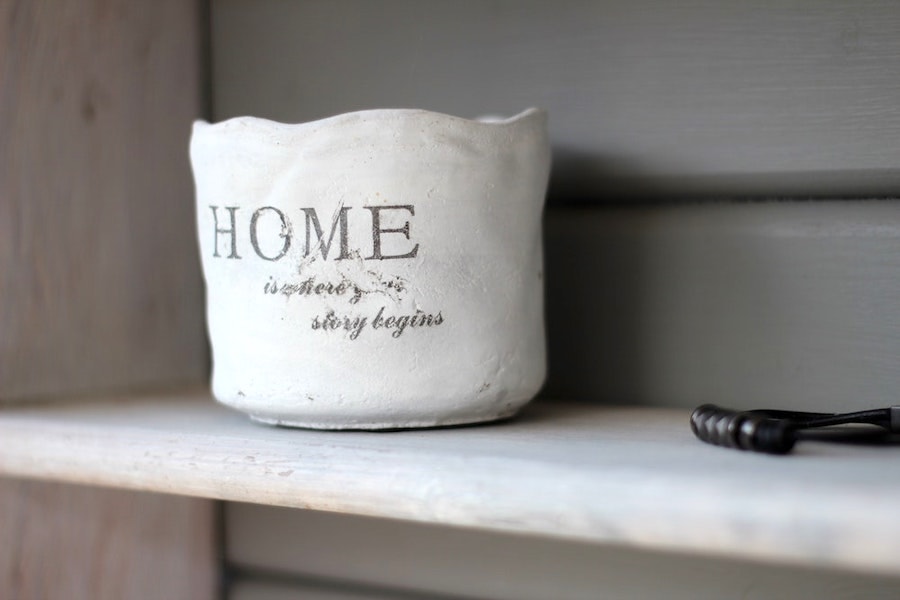
Escrow accounts are designed to protect homebuyers, real estate agents, sellers, and mortgage lenders. When you’re buying a home or refinancing a mortgage, an escrow account will typically be required on some level. There are two common types of escrow accounts: purchase escrow accounts and mortgage escrow accounts.
A purchase escrow account is a temporary holding place for all funds needed during a real estate transaction: earnest money down, buyer down payment, fees for appraisal and home inspections, agent commissions, and more. Escrow accounts are also created for homeowners who decide to refinance to create a temporary holding place for necessary funds.
A mortgage escrow account, on the other hand, is an ongoing monthly payment that is held on behalf of the homeowner to cover property taxes and homeowner’s insurance.
Related: Learn how to get rid of PMI (Private Mortgage Insurance) and lower your mortgage payment
How a Mortgage Escrow Account Works (in a nutshell)
Mortgage escrow accounts are created to safeguard future funds for the homeowner. The funds in a mortgage escrow account are used to pay property taxes, homeowner’s insurance, and sometimes private mortgage insurance premiums. Mortgage escrow accounts are helpful since they allocate funds in advance to guarantee that your property taxes and homeowner’s insurance will always be covered and paid on time. The annual amounts due are divided into monthly installments that are predictable, stable, and tied directly to your mortgage payment.
PROS AND CONS OF A MORTGAGE ESCROW ACCOUNT
Homebuyers with a down payment below 20% will often be required to hold a mortgage escrow account. However, not every mortgage lender follows the same guideline, and each home loan has different criteria to qualify. Talk with your mortgage advisor to learn about your mortgage escrow options.
Understanding the pros and cons can help you make a decision that benefits you.
Benefits of an escrow account
1. Escrow accounts are convenient.
Every time you pay your mortgage, a portion goes straight into your mortgagee escrow account. Since your payments are scheduled ahead of time, you don’t have to worry about when to pay your property taxes or renew your homeowner’s insurance. This is part of the mortgage escrow account and the services attached to it. Homeowner’s insurance and property taxes will be paid on time automatically, straight from your escrow account.
2. Escrow accounts bring a bit of financial stability.
Since your property taxes and homeowner’s insurance are planned ahead of time, your monthly payment is stable. You won’t have to worry about an unexpected property tax bill or trying to cover your HO renewal bill all at once. Instead, you’ll pay the same amount each month to cover these expenses. Standard formulas used by lenders will keep your payment steady.
Related: Know when to refinance an FHA loan to a Conventional home loan
3. You’ll be protected from falling behind on property taxes (and possible foreclosure).
Property taxes change over time, and each state has its own laws that dictate whether property taxes will increase (or decrease) and by what percentage. With a mortgage escrow account, your mortgage service provider will typically cover any financial gap if necessary. Afterward, they will adjust your monthly escrow payment to cover the cost moving forward. This is vital since some homeowners could face foreclosure if they fall behind on their property taxes.
4. You might get a lower mortgage rate.
Mortgage lenders sometimes offer mortgage points (0.25% discount) on the interest rate for homeowners who use an escrow account. Another option is to reduce closing costs in another category, such as the loan origination fee. Both the homeowner and the lender benefit when a mortgage escrow account can keep a property protected. As a result, the lender sometimes offers this discount.
Related: Learn how to boost your credit score and get a lower mortgage rate
Drawbacks of using an escrow account
1. Short-term investment opportunities could be missed.
For many homeowners, the amount of your homeowner’s insurance and property taxes could add up to several thousand dollars per year. Instead of sitting in an escrow account, you might want to invest this money short-term to meet other financial goals. Since HO and property taxes are typically due once or twice per year (depending on your state), this is something to consider. An escrow account ties up your funds, keeping you from short-term options such as CDs or other investments.
2. Mortgage escrow accounts bring higher closing costs.
When you close on a new home, a mortgage escrow account requires homebuyers to deposit enough funds to cover several months’ worth of property taxes plus annual homeowner’s insurance. These are considered pre-paid” items, and it will cause a big bump in your closing costs.
Related: The truth about closing costs and no-closing cost loans
3. Mortgage escrow payments are attached to your monthly mortgage payment.
After closing, your mortgage escrow account is used as a depository for future property taxes and homeowner’s insurance. So, even though you added a huge chunk at closing, you’re mortgage payment will now include an added amount each month that goes directly to your mortgage escrow account. It’s nice to know that your property taxes are going to be covered, but not if you’d rather invest your funds somewhere else.
4. Mortgage escrow accounts can be difficult to cancel.
Yes, many homeowners can cancel a mortgage escrow account, but it’s not always easy. If you’ve reached the 80% LTV ratio mark, you’re in better shape to request a cancelation from your lender. But requirements vary across states, so it can sometimes be difficult to close your escrow account. Talk to a mortgage advisor near you to discuss your options.
How do I cancel my mortgage escrow account?
The requirements to close your mortgage escrow account are common among most mortgage lenders. In general, a homeowner must have an 80% LTV (loan-to-value) ratio for their home. This means you have at least 20% equity in your home, though this requirement can vary across states.
Most homeowners build 20% equity by either putting a large down payment on their home or paying down their mortgage balance. However, in other circumstances, housing prices in your area may have increased substantially, raising your home equity above the 80% LTV threshold. In these instances, your lender may require a formal home appraisal to substantiate the current market value of your home.
Related: Everything you need to know about Home Appraisals (and who pays the cost)
Talk with a local mortgage advisor to confirm the rules in your state.
While most lenders follow the standard 80% LTV criteria, each state has its own criteria. For example, in California, the minimum LTV ratio is 90%. In other states, lenders require mortgage escrow accounts to be active for a minimum of five years before homeowners can request a cancelation.
Summary
Once you understand the pros and cons of a mortgage escrow account, you can decide the best path for your financial goals. Mortgage escrow accounts are designed to protect both the lender and the homeowner. In general, once you have 20% equity in your home, you’ll have several options open up. You can often close out your mortgage escrow account, decide to keep it as-is, or even consider refinancing for a better home loan.
If your financial landscape has improved since you first qualified for a mortgage, definitely connect with a local mortgage advisor and consider refinancing. Mortgage rates are still low, and a better financial picture might help you secure a better mortgage.
Next Steps
If you’re thinking about canceling your mortgage escrow account, we can help guide you through the process. Some homeowners decide to refinance once they have more than 20% equity in their home, so knowing your options can be a smart move. Connect with a local mortgage advisor near you to discuss your homeownership goals and keep moving forward toward financial freedom. We’d love to help.



